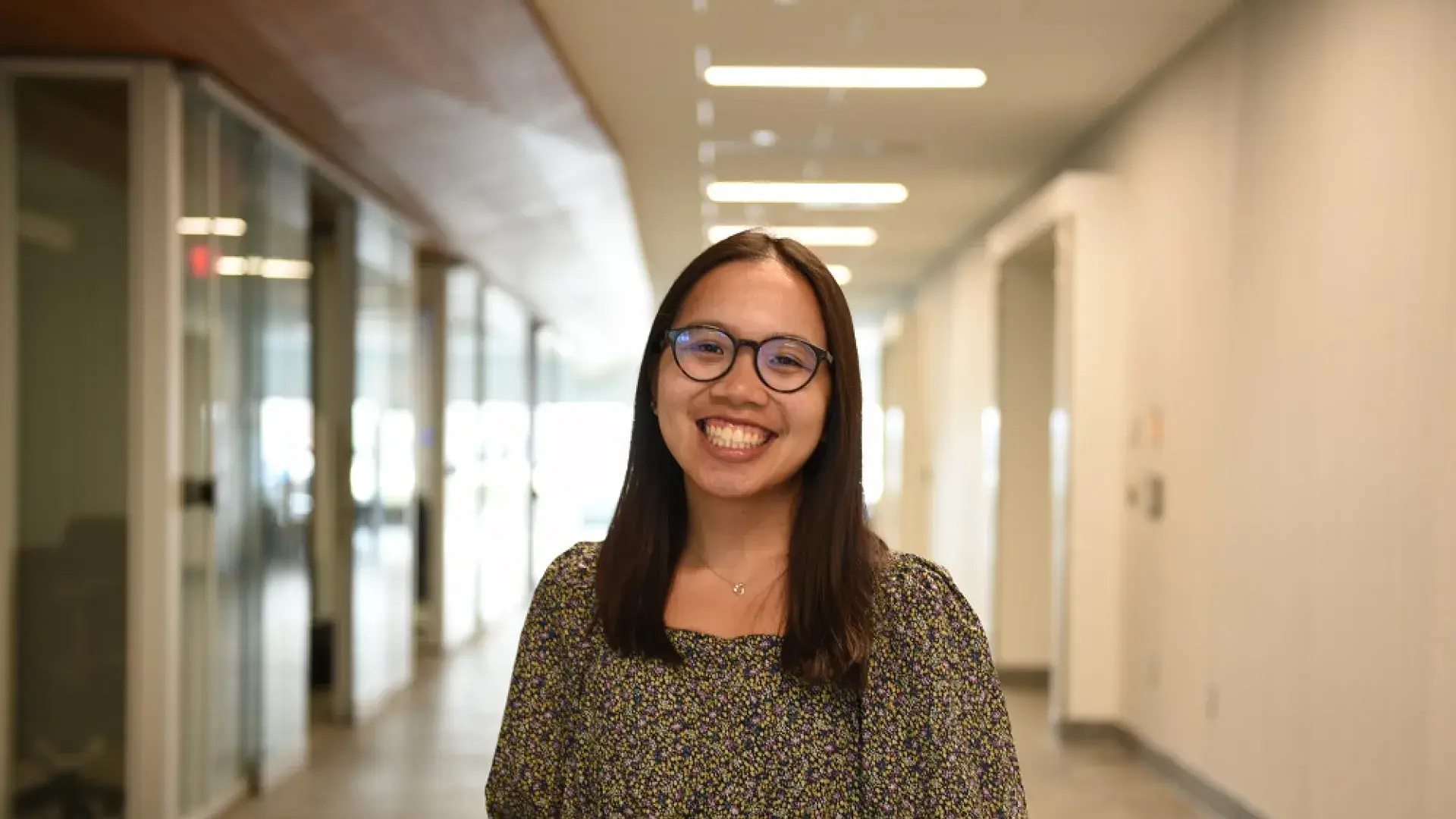
The IHP continues its efforts to cultivate belonging through inclusion, joy, and a collective commitment to justice and equity – not just during AAPI Month but throughout the year.
For Arianna Gayla Bayangos, it is impossible to separate her identity as a Filipinx American with her desire to be an occupational therapist.
“Only a small number of OTs identify as Asian American Pacific Islanders and that has a big impact on the care AAPI patients receive because our community has very specific health needs,” she says, citing the way AAPI patients speak about mental health concerns and what daily activities may be most meaningful to them, as issues that are unique to the community. “I want to serve my community and help them receive the care they need and deserve in order to continue thriving and participating in all those things are meaningful to them.”
The first-year Doctor of Occupational Therapy student works in IHP’s Office of Justice, Equity, Diversity, and Inclusion as a JEDI Fellow. She leads its AAPI Student Space, which was created by JEDI fellows, Corliss Kanazawa, Kanayo Sakai, Richard Monari, and Annika Chan, while they collaborated with student organizations like Minorities Engaged in Dialogue and Services (MEDS) on programs with support from the JEDI Office, in response to the rise in anti-Asian hate crimes and rhetoric that came out of the Covid-19 pandemic. She says it’s a way for students to continue to process similar events and also a space for students to find joy and pride in their AAPI heritage.
“It is a place for us to feel connected, to share our experiences, and feel understood and heard,” says Bayangos, who also is a member of the school’s Coalition of Occupational Therapy Advocates for Diversity (COTAD) chapter. She goes on to say, “I am so proud of my Asian American identity and I wanted to continue this space to celebrate the joys of being Asian.”
The student space began online during the pandemic but shifted to its first in-person meeting in March 2022 when movie screening of Turning Red, a Pixar movie directed and written by Domee Shi, was held that brought together students from across the school’s academic programs. “I’m really hoping it can be a space where we empower and support each other and talk about what it means to be students of color and then clinicians of color,” said Bayangos.
The first processing session hosted by the JEDI Office for faculty, staff, and students who identified as AAPI was held after the 2021 mass shooting of eight people in Atlanta, six of whom were women of Asian descent. Subsequently, the AAPI student space and AAPI Employee Resource Group were formed to create a hub of support for AAPI-identifying IHP community members.
“AAPIs are often viewed as the model minority, seen as a monolithic group, and rendered invisible but they experience racism in different ways than Black, Indigenous, Latine, and multiracial communities do,” said Chief Equity Officer Dr. Kimberly Truong, who last week co-presented a panel discussion, “A Conversation on Asian American Pacific Islander Experiences" with Dr. John Co and Aswita Tan-McGrory at the Mass General Brigham’s 6th annual DE&I Summit.
Truong said AAPIs often experience what she called “the bamboo ceiling” and are given messages that they are overrepresented. Despite that, they are underrepresented in leadership positions – something she said is not the case at the Institute. “We recognize the leadership of students such as Arianna as well as our faculty, such as Dr. Gayun Chan-Smutko and Dr. Janice Palaganas who are both associate directors of their respective departments,” Truong said.
Over the past year, the IHP has worked with two people at Mass General Brigham – Dr. Carla Carten, Interim Senior Vice President and Chief Diversity, Equity & Inclusion, and Rose Sheehan, Chief Human Resources Officer – to host a series of webinars on AAPIs and health that was open to all MGB employees to better understand who AAPIs are, identify health disparities within the AAPI communities, and highlight the need to learn more about how to advance care for AAPIs. “We still have a long way to go, but these conversations and spaces allow us to continue to learn and reflect,” Truong said.
This summer, the IHP’s AAPI members will participate in a workshop and debrief on the myth of model minority mutiny to further engage in self-reflection and learning.
For Truong, recognizing AAPI Heritage Month is a time to reaffirm society’s collective commitment to being more inclusive. “Let’s not just commit to AAPI’s during the month of May,” she says. “Let’s commit to learn more about AAPI culture and the racism they experience just like we should do for Black communities, Latine communities, Indigenous communities, and multiracial people, the experiences of individuals with disabilities have with ableism, and those from marginalized communities with oppression.”
